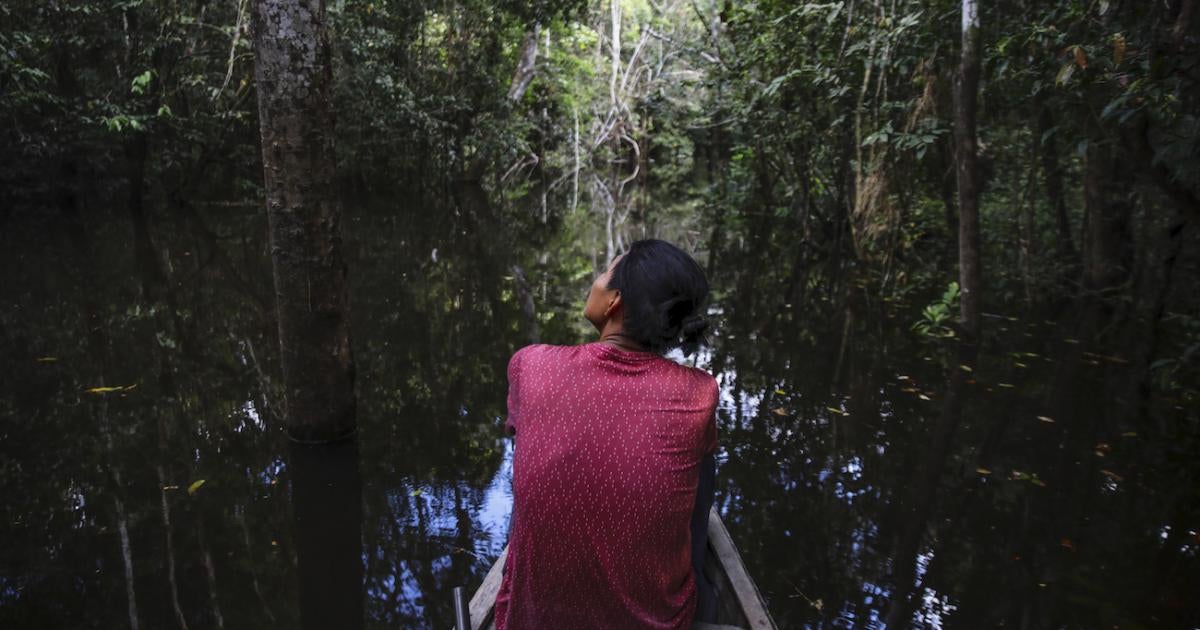EU Approves Law for ‘Deforestation-Free’ Trade
Today, the European Union adopted an important new law requiring EU-based companies to ensure their imports and exports are “deforestation-free” and not driving human rights abuses.

The European Union Deforestation-Free Products Regulation puts the onus on companies registered in EU member states to ensure seven agricultural commodities – cattle, cocoa, coffee, oil palm, rubber, soy, and wood – that they import or export have not been produced on land deforested after December 31, 2020. Several derived products are covered, too, such as chocolate and leather.
The law requires companies to trace the commodities back to where they were produced.
The regulation also requires companies to ensure these commodities are produced in conditions that comply with “relevant laws” in their country of origin.
These include laws on land-use rights, labor rights, human rights protected under international law, and the right to free, prior, and informed consent as set out in the United Nations Declaration on the Rights of Indigenous Peoples, and anti-corruption laws.
The EU imports billions of euros worth of timber and agricultural commodities annually from around the world.
These commodities can be tainted by child labor, forced displacement of rural communities, and killings of environmental defenders.
The new law requires that companies root out labor and human rights violations from their supply chains or risk being held accountable in EU courts. Within 18 months after the regulation enters into force, the European Commission, the EU’s executive arm, will designate producer countries low, medium, or high risk based on their rate of deforestation, and the existence, compliance with, and effective enforcement of laws protecting human rights, the rights of Indigenous peoples, local communities, and other customary tenure rights holders, among other criteria. Products from countries deemed “high risk” will face tougher scrutiny by EU customs authorities, and European companies will be required to conduct more stringent due diligence when sourcing from those locations.
The European Union Deforestation-Free Products Regulation holds great promise but its effectiveness will come down to strict implementation by every EU member country – including through the creation of effective avenues for redress for victims of rights abuses – and the EU’s support to trading partners to promote compliance.
The European Commission will need to resist political pressure from trading partners and the EU’s own members to ensure the benchmarking accurately reflects conditions on the ground and contributes to effective enforcement of the regulation.
Read the full article at the original website
References:
- https://www.consilium.europa.eu/en/press/press-releases/2023/05/16/council-adopts-new-rules-to-cut-deforestation-worldwide/?utm_source=dsms-auto&utm_medium=email&utm_campaign=Council+adopts+new+rules+to+cut+deforestation+worldwide
- https://www.hrw.org/news/2023/04/19/eu-major-step-deforestation-free-trade
- https://www.wwf.eu/?2831941/EU-consumption-responsible-for-16-of-tropical-deforestation-linked-to-international-trade
- https://apnews.com/article/virus-outbreak-only-on-ap-indonesia-financial-markets-malaysia-7b634596270cc6aa7578a062a30423bb
- https://www.hrw.org/report/2017/10/25/forced-leave/commercial-farming-and-displacement-zambia
- https://www.hrw.org/report/2019/09/17/rainforest-mafias/how-violence-and-impunity-fuel-deforestation-brazils-amazon
- https://www.theedgemarkets.com/node/65809
